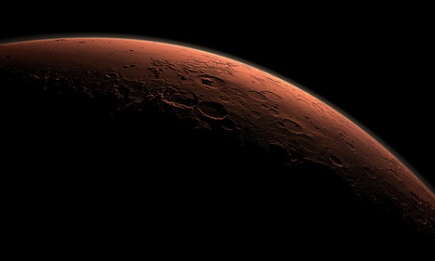To Mars and beyond

TU Delft hosted “
Ambitious Chinese space missions
CAST (the Chinese Academy for Sciences and Technology) is a keyunit of China’s space program. Yang Hong himself designed “HeavenlyPalace-1”, a space module
Yang’s emerging space-flight nation has ambitious plans, notonly to expand its status as an economic superpower, but to gain afoothold in space as well. China therefore pursues i.a. newmissions to orbit and land on the Moon. In 2007, a Chinesesatellite orbited the moon for the first time. This year, a landingmission will be conducted with the goal to recover samples by2017.
So far this was a domain of the United States, the former SovietUnion and a few other countries. They maintain and conduct researchfor instance on the International Space Station (ISS). The ISS,however, is set to retire by 2020, the very year that China aims tocomplete its much larger “Heavenly Palace” project, Yang Hong’smaster piece.
Sino-European cooperation
The chief designer of this great undertaking told ScienceGuidethat he graduated in 1984 from the Chinese University fortelecommunications, science and technology. Subsequently, he wastrained by CAST as an engineer. “My team and I came to the ‘Citizenof Space’ symposium to find out more about what is going on withthe European space industry. There is a lot of new and creativeconcepts being built right here.”
“I believe that for the Chinese and European space industrythere are great opportunities in working together,” Yang states.”The technical university here in Delft is a great platform to getin touch with ambitious students and stakeholders.”
The Dutch space industry gathered last week with a group ofmembers of parliament to strengthen the awareness in Europe and theNetherlands in particular of both the validity of Yang Hong’sanalysis and the opportunities tis fact gives for a top-techcountry like the Netherlands. Read the article on this
Moon, Mars only one step
While China is aiming for the moon in these next few years, Yanghimself has even more ambitious plans for the longer termperspectives of China and its space-efforts and research. “Myultimate dream is to let manned space flight benefit all humanity.Not just our Chinese people, but all citizens in the world. I thinkthat flying to Mars is just one step. In fact, we should think muchbeyond that.”
This also means investing in future talent, Yang argues. Justlike in the Netherlands and many major industrial countries theenthusiasm for space-related STEM studies is a major factor andworry in China, Hong reveals. “The Chinese government is veryconcerned that there is enough young talented people studyingsciences like engineering, mathematics etc. I think that the trendwe now see that many Chinese students decide to study in Europe isa great thing. Education in Europe is the best.”
Yang urges, however, that this should not result in a braindrain for China or a one-way traffic of knowledge, ideas andinnovations. “It is very important that there is an exchangebetween China and Europe. We also welcome European students andwant to see them study with us in China. Nevertheless, we are alsoconcerned that our Chinese citizens return to their home countryand research there.”
Meest Gelezen
Vrouwen houden universiteit draaiende, maar krijgen daarvoor geen waardering
Hbo-docent wil wel rolmodel zijn, maar niet eigen moreel kompas opdringen
Wederom intimidatie van journalisten door universiteit, nu in Delft
‘Waarom het nu niet lukt om medezeggenschap in hbo te versterken’
‘Sluijsmans et al. slaan de plank volledig mis’

